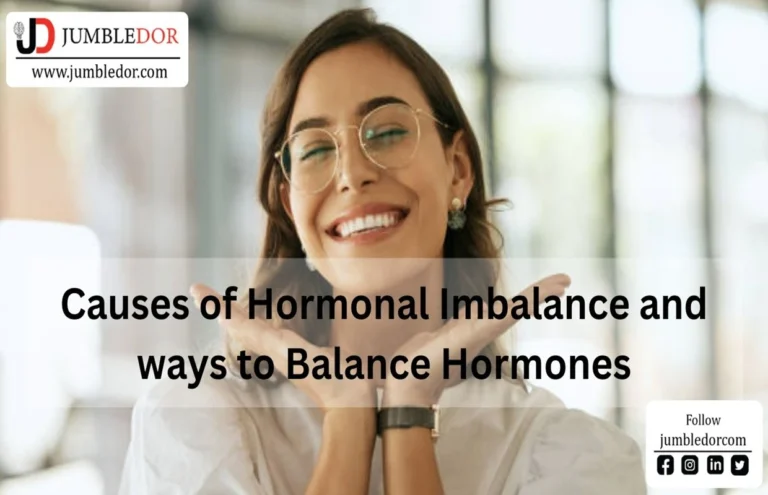Hormones act as chemical messengers in the body, regulating various bodily functions such as metabolism, growth, mood, and sexual function. When the delicate balance of hormones is disrupted, it can have far-reaching effects on our health and well-being, leading to what we call hormonal imbalance. Let’s discuss more about the causes of hormonal imbalance and how to balance it in your daily life.
What is Hormonal Imbalance?
Hormonal imbalance occurs when there is an excess or deficiency of specific hormones in the body. This disruption can impact how various systems function, resulting in a wide range of symptoms that affect both physical and emotional well-being. Identifying the causes of hormonal imbalance is crucial in addressing the root of the issue and restoring harmony within the body.
Impact of Hormonal Imbalance
Hormonal imbalance can manifest in a myriad of ways, affecting different individuals uniquely. Common symptoms include irregular menstrual cycles, weight fluctuations, skin issues, mood swings, fatigue, and sexual dysfunction. These symptoms can not only be uncomfortable but can also interfere with daily life and overall quality of life. Several hormones in the body are more prone to imbalance due to various factors. These include cortisol, insulin, thyroid hormones (T3 and T4), estrogen, progesterone, testosterone, and adrenaline. Disruptions in the levels of these hormones can lead to widespread effects on the body, highlighting the importance of maintaining their balance.
What are the Causes of Hormonal Imbalance?
Stress: Chronic stress can elevate cortisol levels, disrupting the balance of other hormones in the body and contributing to hormonal imbalance.
Poor Diet: Nutrient deficiencies and excessive consumption of processed foods can affect hormone production and signaling, leading to imbalance.
Lack of Sleep: Inadequate sleep can interfere with hormone regulation, impacting cortisol and growth hormone levels.
Sedentary Lifestyle: Physical inactivity can disrupt hormone levels, particularly insulin sensitivity and sex hormones.
Medical Conditions: Conditions such as polycystic ovary syndrome (PCOS), thyroid disorders, and diabetes can cause hormonal imbalances.
Environmental Factors: Exposure to endocrine-disrupting chemicals in the environment, such as BPA and phthalates, can interfere with hormone function.
Medications: Certain medications, including corticosteroids, can influence hormone levels and contribute to imbalance.
Age: Hormonal fluctuations are common during puberty, pregnancy, menopause, and aging, impacting hormone levels.
Genetics: Genetic factors can influence hormone production and metabolism, predisposing individuals to hormonal imbalance.
Lifestyle Factors: Smoking, excessive alcohol consumption, and exposure to chronic stress can all contribute to hormonal disruption.
How to Balance Hormones Naturally?
Achieving hormonal balance involves adopting a holistic approach that addresses lifestyle, nutrition, stress management, and potential underlying medical conditions. Strategies to balance hormones include:
Eating a Balanced Diet: Focus on whole foods rich in nutrients that support hormone production and metabolism.
Regular Exercise: Engage in physical activity to improve insulin sensitivity and support hormone regulation.
Stress Management: Practice relaxation techniques such as meditation, yoga, or mindfulness to reduce cortisol levels.
Adequate Sleep: Get quality sleep to help the body produce and balance hormones.
Avoiding Endocrine Disruptors: Minimize exposure to environmental toxins by opting for natural personal care products and reducing plastic use.
In conclusion, hormonal imbalance is a complex phenomenon influenced by multiple factors that can impact our health and well-being. By understanding the causes of hormonal imbalance and implementing strategies to restore harmony within the body, we can support optimal hormone function and overall wellness. Remember, small changes in lifestyle and habits can make a significant difference in maintaining hormonal balance and promoting a healthier, happier you.
Articles you may like:


